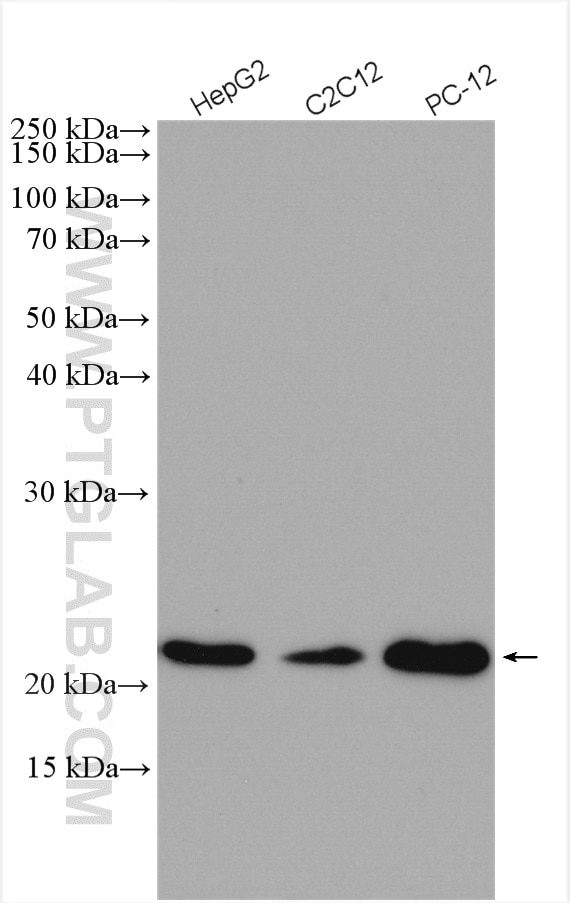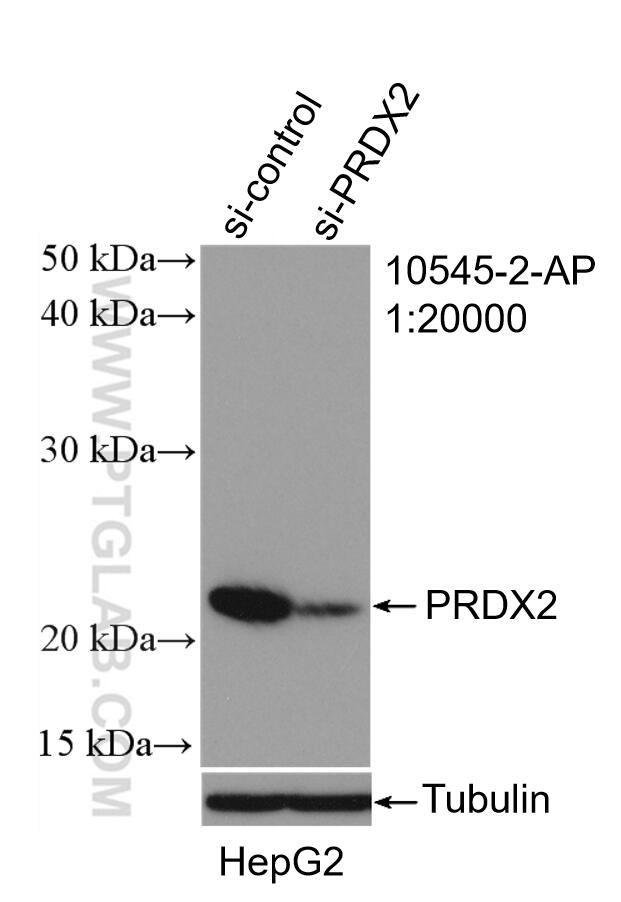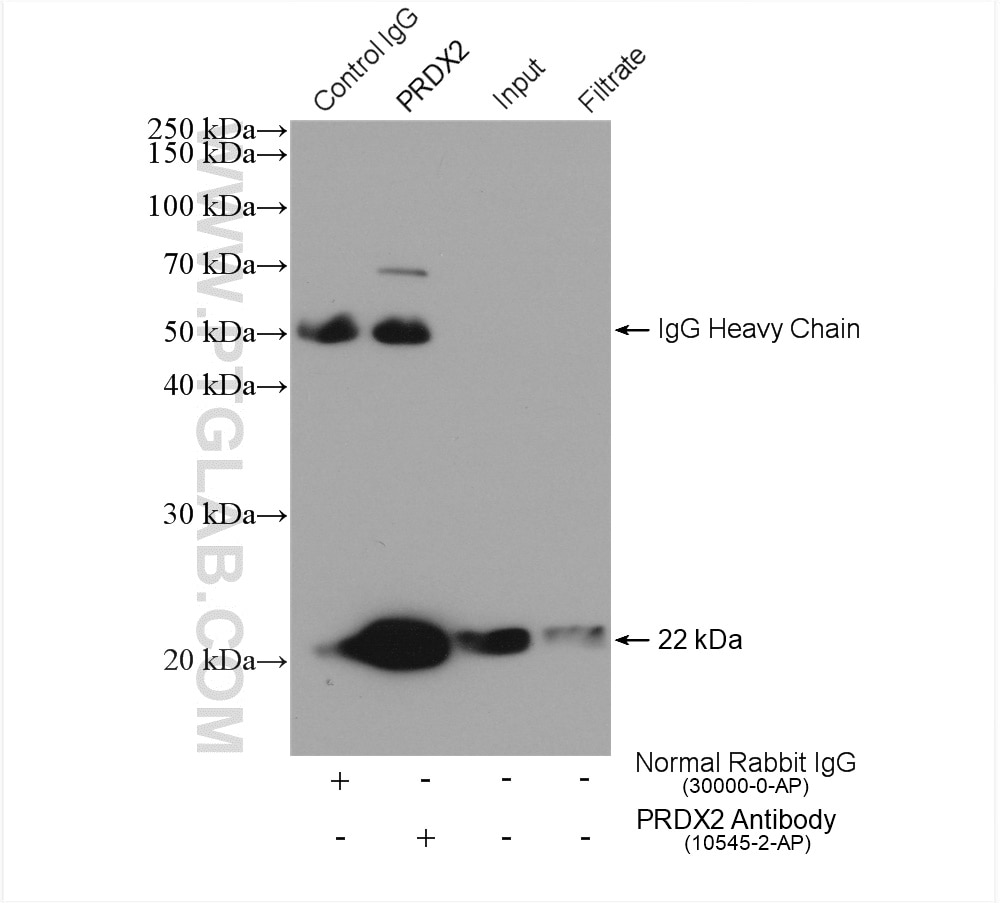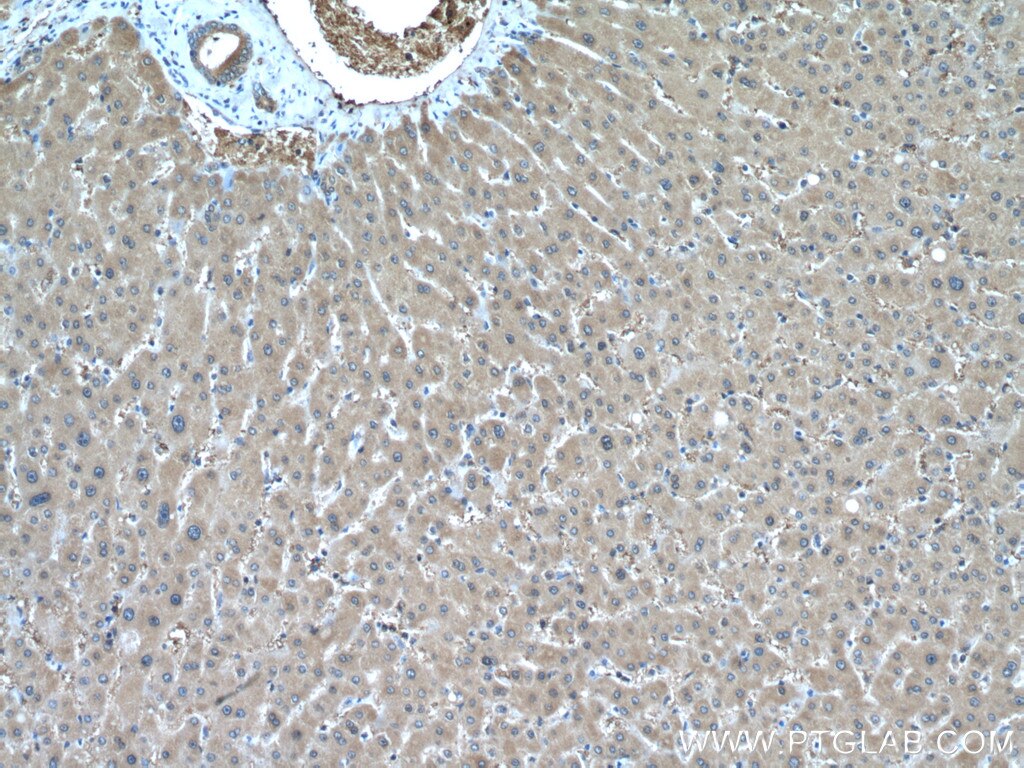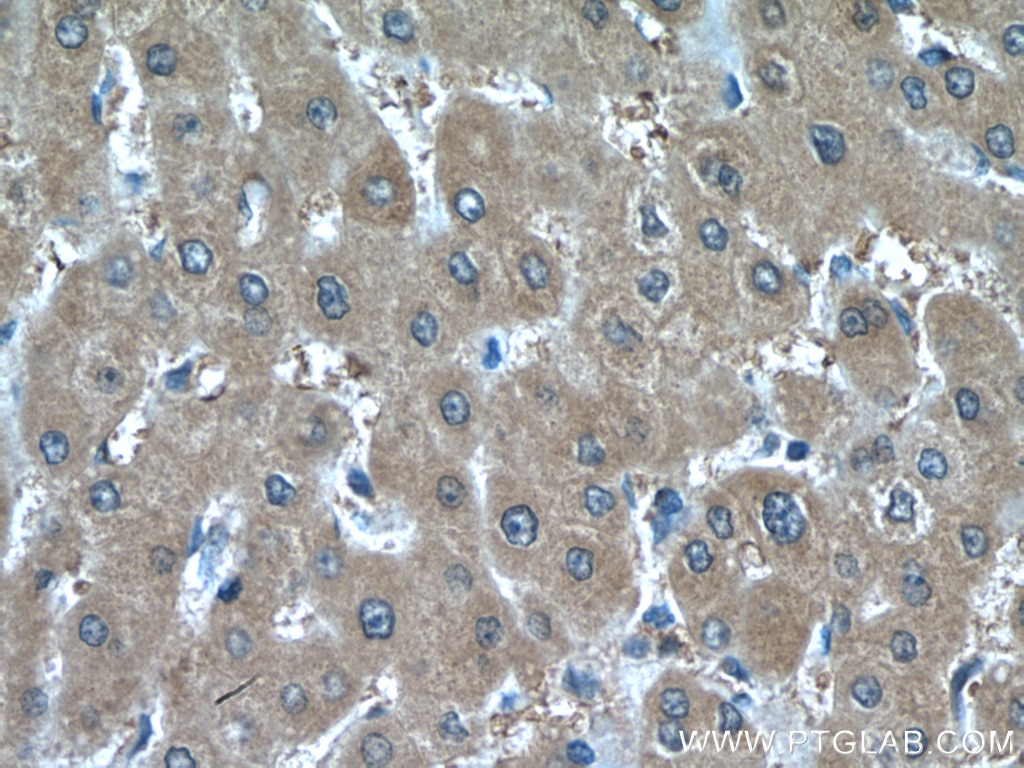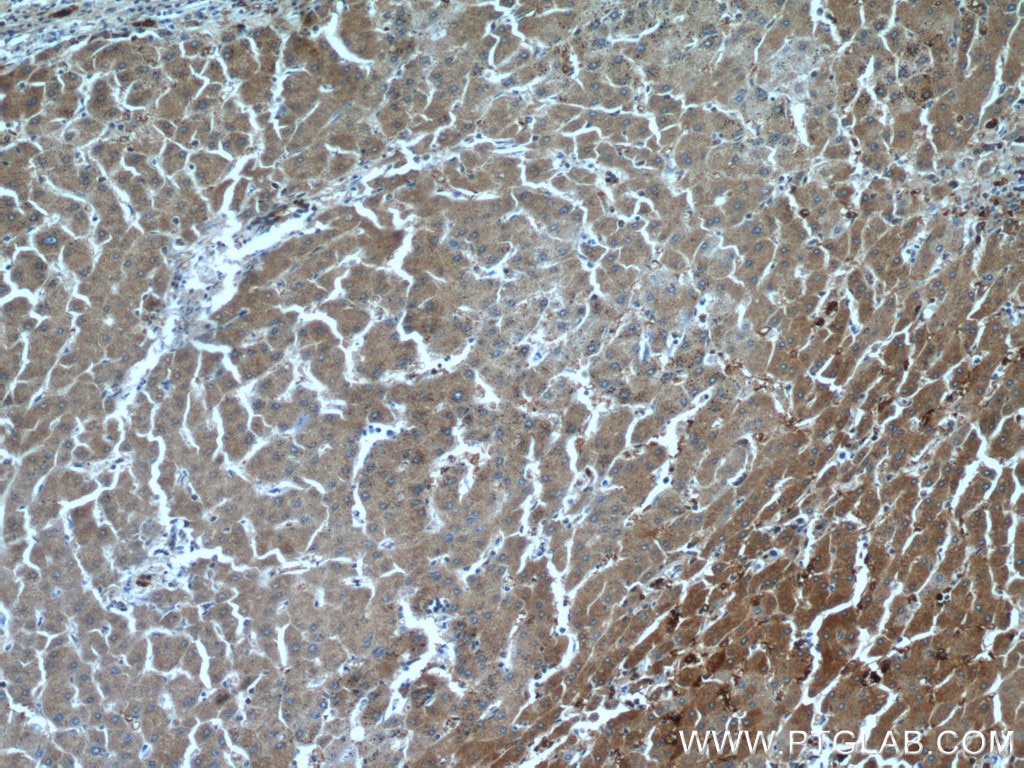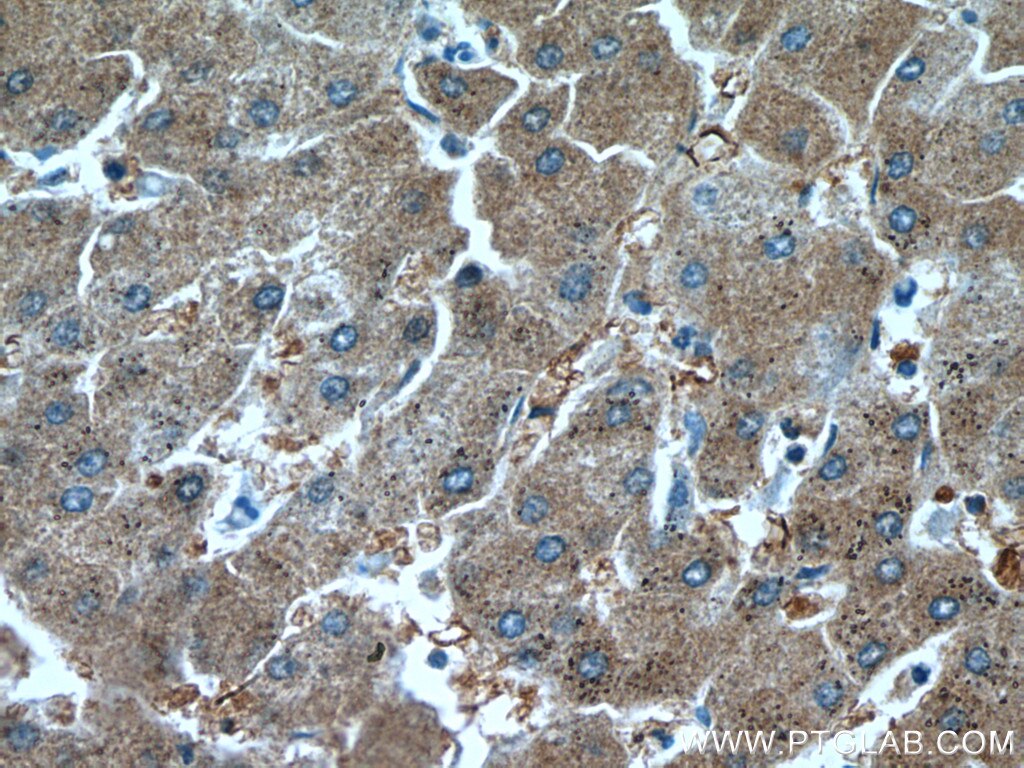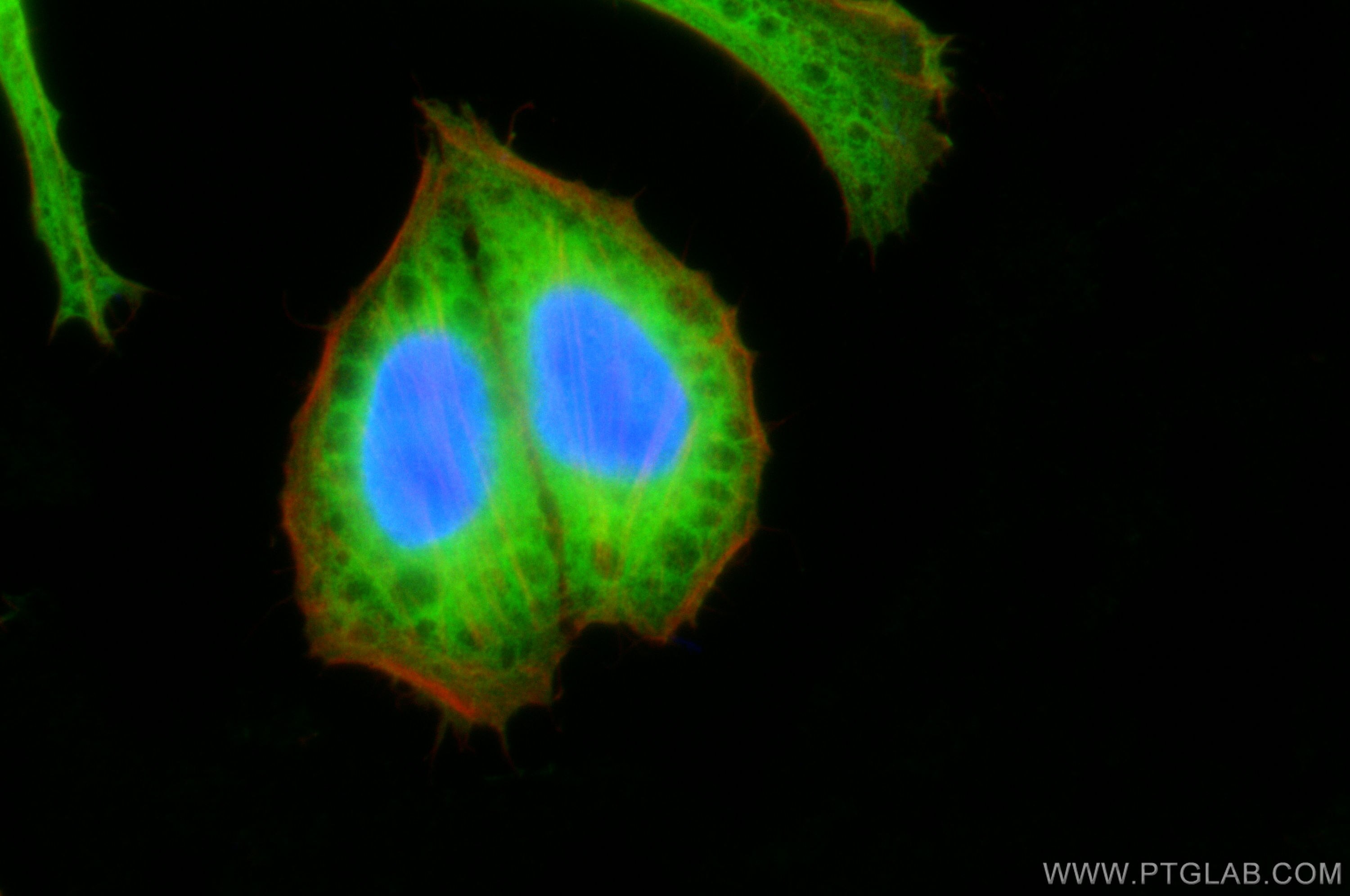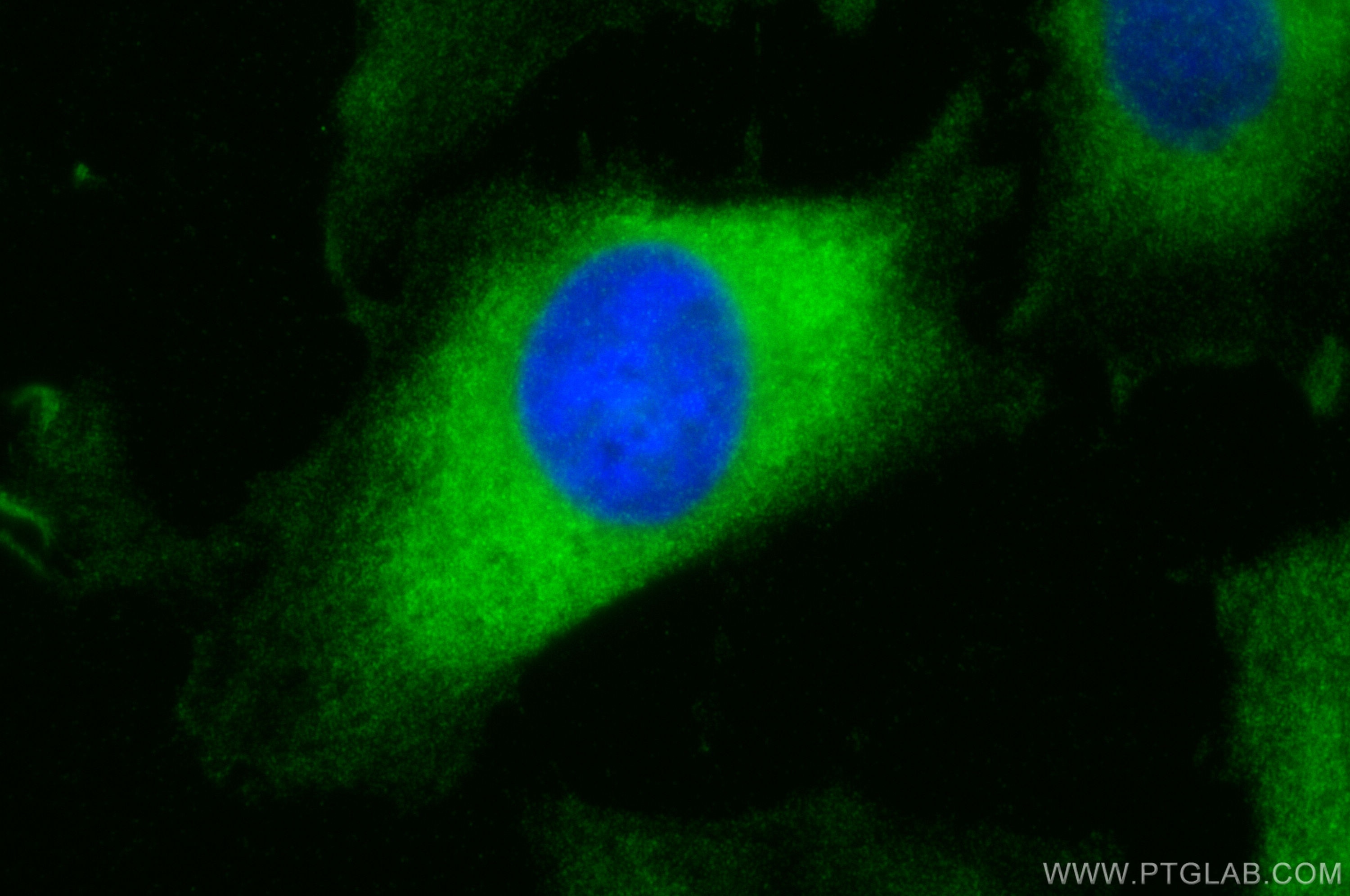- Phare
- Validé par KD/KO
Anticorps Polyclonal de lapin anti-peroxiredoxin 2
peroxiredoxin 2 Polyclonal Antibody for WB, IP, IF, IHC, ELISA
Hôte / Isotype
Lapin / IgG
Réactivité testée
Humain, rat, souris
Applications
WB, IHC, IF/ICC, IP, CoIP, RIP, ELISA
Conjugaison
Non conjugué
N° de cat : 10545-2-AP
Synonymes
Galerie de données de validation
Applications testées
| Résultats positifs en WB | cellules HepG2, cellules C2C12, cellules PC-12 |
| Résultats positifs en IP | cellules HepG2, |
| Résultats positifs en IHC | tissu hépatique humain, tissu de cirrhose hépatique humain il est suggéré de démasquer l'antigène avec un tampon de TE buffer pH 9.0; (*) À défaut, 'le démasquage de l'antigène peut être 'effectué avec un tampon citrate pH 6,0. |
| Résultats positifs en IF/ICC | cellules HepG2, cellules HeLa |
Dilution recommandée
| Application | Dilution |
|---|---|
| Western Blot (WB) | WB : 1:1000-1:8000 |
| Immunoprécipitation (IP) | IP : 0.5-4.0 ug for 1.0-3.0 mg of total protein lysate |
| Immunohistochimie (IHC) | IHC : 1:600-1:3000 |
| Immunofluorescence (IF)/ICC | IF/ICC : 1:50-1:500 |
| It is recommended that this reagent should be titrated in each testing system to obtain optimal results. | |
| Sample-dependent, check data in validation data gallery | |
Informations sur le produit
10545-2-AP cible peroxiredoxin 2 dans les applications de WB, IHC, IF/ICC, IP, CoIP, RIP, ELISA et montre une réactivité avec des échantillons Humain, rat, souris
| Réactivité | Humain, rat, souris |
| Réactivité citée | rat, Humain, souris |
| Hôte / Isotype | Lapin / IgG |
| Clonalité | Polyclonal |
| Type | Anticorps |
| Immunogène | peroxiredoxin 2 Protéine recombinante Ag0835 |
| Nom complet | peroxiredoxin 2 |
| Masse moléculaire calculée | 22 kDa |
| Poids moléculaire observé | 22 kDa |
| Numéro d’acquisition GenBank | BC003022 |
| Symbole du gène | peroxiredoxin 2 |
| Identification du gène (NCBI) | 7001 |
| Conjugaison | Non conjugué |
| Forme | Liquide |
| Méthode de purification | Purification par affinité contre l'antigène |
| Tampon de stockage | PBS avec azoture de sodium à 0,02 % et glycérol à 50 % pH 7,3 |
| Conditions de stockage | Stocker à -20°C. Stable pendant un an après l'expédition. L'aliquotage n'est pas nécessaire pour le stockage à -20oC Les 20ul contiennent 0,1% de BSA. |
Informations générales
PRDX2, also named as TSA, PRP, NKEFB and TDPX1, belongs to the ahpC/TSA family. It is known to act as an antioxidant enzyme whose main function is H2O2 reduction in cells. PRDX2 is involved in redox regulation of the cell. It reduces peroxides with reducing equivalents provided through the thioredoxin system. It may play an important role in eliminating peroxides generated during metabolism. PRDX2 might participate in the signaling cascades of growth factors and tumor necrosis factor-alpha by regulating the intracellular concentrations of H2O2. PRDX2 actions may be related to the expression of NFKB and IKB.(PMID:21248284)
Protocole
| Product Specific Protocols | |
|---|---|
| WB protocol for peroxiredoxin 2 antibody 10545-2-AP | Download protocol |
| IHC protocol for peroxiredoxin 2 antibody 10545-2-AP | Download protocol |
| IF protocol for peroxiredoxin 2 antibody 10545-2-AP | Download protocol |
| IP protocol for peroxiredoxin 2 antibody 10545-2-AP | Download protocol |
| Standard Protocols | |
|---|---|
| Click here to view our Standard Protocols |
Publications
| Species | Application | Title |
|---|---|---|
ACS Nano Engineering Extracellular Vesicles Restore the Impaired Cellular Uptake and Attenuate Intervertebral Disc Degeneration. | ||
Br J Pharmacol Luteolin ameliorates rat myocardial ischemia-reperfusion injury through peroxiredoxin II activation. | ||
Free Radic Biol Med Oxidation resistance 1 regulates post-translational modifications of peroxiredoxin 2 in the cerebellum. | ||
Stem Cells Dominant role of peroxiredoxin/JNK axis in stemness regulation during neurogenesis from embryonic stem cells. | ||
Oxid Med Cell Longev Azelaic Acid Exerts Antileukemia Effects against Acute Myeloid Leukemia by Regulating the Prdxs/ROS Signaling Pathway. |
